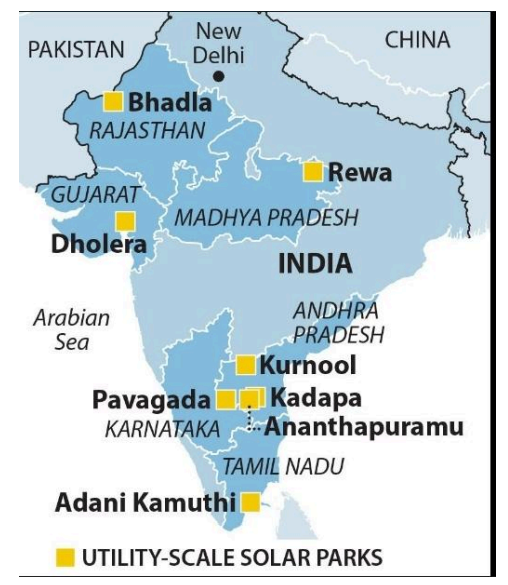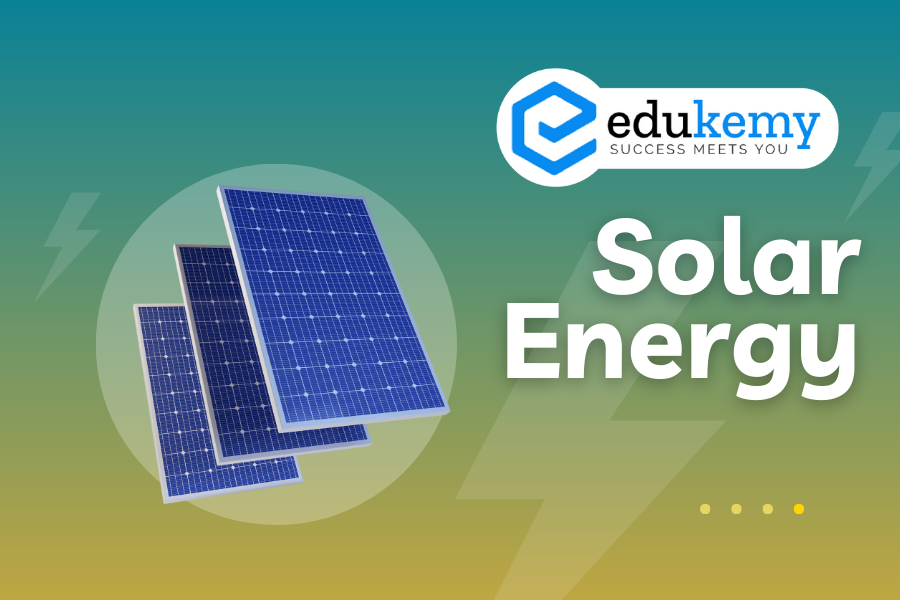
Solar energy is emerging as a pivotal force in shaping the future economic landscape of India. With its abundant sunlight resources, the country possesses immense potential to harness solar power and drive sustainable development. As the world transitions towards cleaner and renewable energy sources, India stands at a critical juncture where embracing solar energy can profoundly impact its economic growth trajectory. By reducing dependency on fossil fuels, mitigating environmental degradation, and fostering innovation in the energy sector, solar energy holds the key to unlocking a brighter, more prosperous future for India. In this discussion, we will delve into the significance of solar energy in driving India’s economic development and explore the multifaceted benefits it offers for both the nation and its citizens.
Contents
Answer
Introduction:
Solar energy refers to the harnessing of sunlight to generate electricity or heat. With its potential to address energy needs sustainably, it plays a pivotal role in shaping the future economic development of India.

Body:
Importance of solar energy in future economic development of India:
- Energy Security: Solar energy reduces India’s dependency on fossil fuels, promoting energy security. It mitigates the impact of global oil price fluctuations, ensuring a stable energy supply.
- Environmental Sustainability: India’s commitment to environmental sustainability is reinforced by solar energy. It reduces greenhouse gas emissions, mitigating climate change effects and aligning with global goals.
- Job Creation: The solar industry fosters job creation. From manufacturing solar panels to installation and maintenance, it generates employment, contributing to economic growth.
- Rural Electrification: Solar power is crucial for reaching remote areas where conventional grid infrastructure is challenging. It empowers rural communities, bridging the urban-rural development gap.
- Cost Efficiency: The decreasing cost of solar technology makes it an economically viable alternative. As prices continue to fall, solar energy becomes more accessible, enhancing its adoption across industries and households.
- Technological Advancements: Investment in solar energy stimulates technological advancements. Research and development in this sector lead to innovations, making solar solutions more efficient and affordable.
- Foreign Direct Investment (FDI): India’s emphasis on solar energy attracts foreign investment. Collaborations with international entities bring capital, expertise, and technology, fostering economic development.
- Economic Diversification: By integrating solar energy into the energy mix, India diversifies its energy sources. This diversification ensures a more resilient and adaptable economy, reducing vulnerability to energy-related crises.
Conclusion:
In conclusion, the widespread adoption of solar energy in India is paramount for future economic development. It not only addresses energy challenges but also aligns with global environmental commitments. The growth of the solar industry contributes to job creation, technological innovation, and economic diversification. To ensure a sustainable and prosperous future, continued investment and policy support for solar energy are essential.
In case you still have your doubts, contact us on 9811333901.
For UPSC Prelims Resources, Click here
For Daily Updates and Study Material:
Join our Telegram Channel – Edukemy for IAS
- 1. Learn through Videos – here
- 2. Be Exam Ready by Practicing Daily MCQs – here
- 3. Daily Newsletter – Get all your Current Affairs Covered – here
- 4. Mains Answer Writing Practice – here

